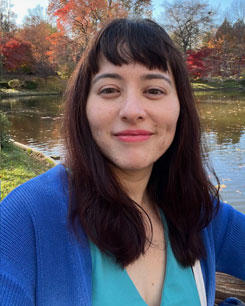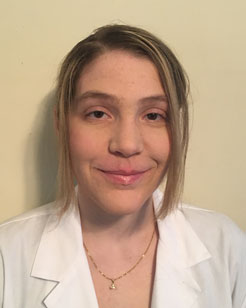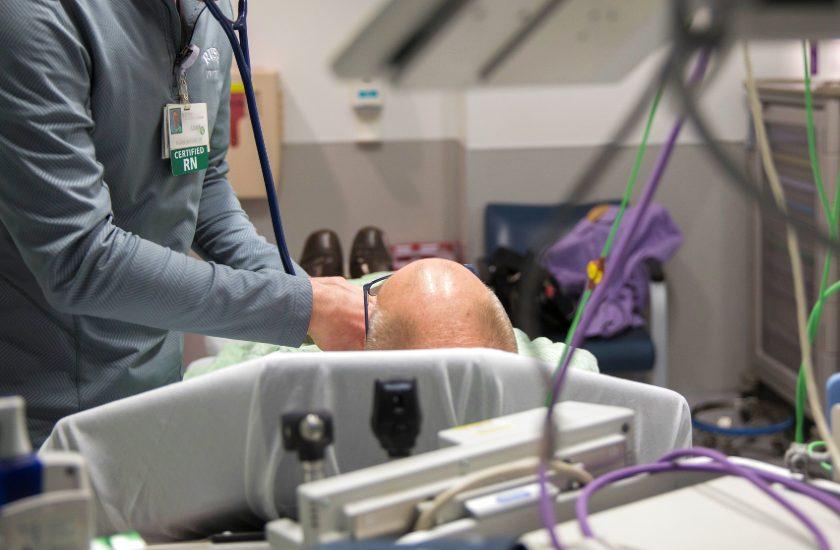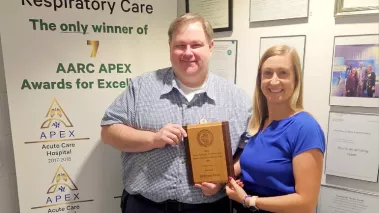When it comes to transforming patient care and innovating care models, engaging clinicians who are at the bedside is essential. This includes nurses who are directly involved in daily patient care; they are well-positioned to provide insight and offer innovative solutions to problems they see or experience firsthand in their everyday work. However, direct care nurses are not often involved in clinical nursing research.
Through the College of Nursing’s Center for Clinical Research & Scholarship, the Rush Nurse Research Fellowship (RNRF) Program aims to bridge the gap between the beside and research. The RNRF provides three direct care nurses in the Rush System for Health with the infrastructure and opportunity to receive dedicated paid research time and mentorship to develop, implement, evaluate and disseminate a research study. Spanning twelve months, the program aims to promote innovative thinking with fellows developing a relevant research study that will result in changes to practice and/or clinical scholarship. Leadership from the Center for Clinical Research & Scholarship including Mary Heitschmidt, PhD, are paired with fellows and serve as mentors working closely with their mentee through every step of the program. Additionally, fellows are guided by their research mentors on how to share their findings at regional or national conferences and through publication.
Read on to learn more about the fourth RNRF cohort and their research, outcomes and successes.
Meet the 2023 Fellows
 Elise McKnight-Kim, BSN, RN
Elise McKnight-Kim, BSN, RN
Adult ICU, Staff Nurse
Rush University Medical Center
RNRF Research Project: "Addressing Inpatient Interpretation Needs for the Limited English Proficiency Patient: Nurses’ Perspectives and Practices"
I have been a practicing nurse for 5 years now. Originally from Hawaii, I worked as an ESL teacher overseas for several years in Korea before moving towards nursing. I first started my nursing career as a new grad in a Progressive Care Unit in Georgia's Gwinnett County and now have been working with medical/surgical ICU patients in the Adult ICU unit at Rush University Medical Center for the last two years.
What made you decide to apply and ultimately participate in the RNRF?
I love the open-endedness of research, and the ability to pursue whatever topics or ideas interest you. Interpretation and linguistic communication have always been strong interests of mine, even before I became a nurse. Working as a new grad nurse in Georgia during the COVID pandemic, I then had the opportunity to see many forms of electronic medical interpretation being used in a dynamic and constantly shifting situation. I thought it was very interesting to see what tools were used and how nurses adapted to overcome barriers and communicate with patients in a very diverse population. When I heard about the RNRF program, I knew exactly what topic I wanted to research as a fellow.
What did your research during the fellowship focus on?
During the fellowship, I researched how inpatient nurses perceive interpretation use and what patterns and motivating factors were behind the choice to use or not use interpreters during care of limited English proficiency patients. I was also very curious what types of interpretation nurses preferred or thought were most effective. For my population, I focused on inpatient nurses at Rush University Medical Center, since I thought outpatient nurses or procedural nurses might not have the same flow of interaction with their patients.
What did you learn from participating in the RNRF?
I learnt a lot about the step-to-step process of doing research: I had no idea about the work behind thinking of a question, researching the question, and then moving into actually implementing a research study with human subjects. The mentors I met through Rush's RNRF program were invaluable in this respect, and I gained so much from their practical experience and advice.
Would you recommend the RNRF to other Rush nurses?
I would absolutely recommend it. As a nurse, the RNRF has been an invaluable experience and opportunity. If other nurses have any practice related questions or interests that they have always wanted to dive into, this research program is a wonderful method of getting to pursue that. The research itself has been very intrinsically motivational, because as a RNRF participant you have the opportunity to learn new things that might actually be able to improve your own practice as well as that of others.
 Rosemary Forg, MSN, RN, CNL
Rosemary Forg, MSN, RN, CNL
Emergency Department
RUSH Copley Medical Center
RNRF Research Project: “The effect of gratitude journaling on physical and mental health in multidisciplinary emergency department staff”
Rosemary Forg is an Emergency Department nurse at Rush Copley Medical Center, where she currently sits on the Research Congress. After majoring in Biochemistry at North Central College, she entered into hospital-based Emergency Services in 2013 as first a transport EMT, and then Paramedic/ED Tech. She went on to complete her MSN and CNL at Rush University and spent her first year as a nurse in the ICU before returning to her roots in Emergency Services.
What made you decide to apply and ultimately participate in the RNRF?
Although I love bedside nursing in the ED, I have always been passionate about research and evidence-based practice and have been looking for ways to incorporate these interests into my role as a staff nurse. Time and resources can be limiting factors for a staff nurse on a busy unit! When I found out about the RNRF program and how it would support me with those needs, I knew it was exactly what I was looking for.
What did your research during the fellowship focus on?
One area of interest for me is addressing burnout, stress, and nursing wellness. I strongly feel that supporting the health and wellness of healthcare providers is not only important, but also results in better patient experience and outcomes. My research project describes the effects of gratitude journaling compared to weekly wellness informational emails on vital signs, burnout, secondary traumatic stress, and general perceived stress in interdisciplinary ED staff.
What did you learn from participating in the RNRF?
Participating in the RNRF was an amazing and empowering learning experience. I was fully supported in developing, implementing, and disseminating a research project from start to finish. Although I had some previous experience, we went through a lot of new territory that has helped build my confidence and knowledge toolkit for future research projects!
Would you recommend the RNRF to other Rush nurses?
I cannot recommend the RNRF enough! It truly is an amazing program that gives you not only the time in your schedule to focus on research, but also fully supports and guides you every step of the way. I feel truly grateful for this opportunity, it was a dream come true!
Clinical Nurse Research Scholar (CNRS) Program
The inaugural RUSH Clinical Nurse Research Scholars Program, also known as CNRS, was launched in November 2023. The CNRS goal is to foster the growth of research activities in clinical nurses through our unique academic clinical partnership. CNRS work with a CON faculty mentor on their funded research study. This new program was launched in November 2023.
Inaugural Clinical Nurse Research Scholars
- Amber Simpson, MSN, RN, CNL, Endoscopy, RUMC
- Melanie Seaton, RN, 11 East Cardio Sciences Intensive Care Unit, RUMC
- Kristina Piedad, BSN, RN, AMB-BC, Cancer Center- Neuro Oncology, RUMC
For more information on the Rush Nurse Research Fellowship (RNRF) and Clinical Nurse Research Scholar (CNRS) Programs, contact Mary_g_Heitschmidt@rush.edu.







